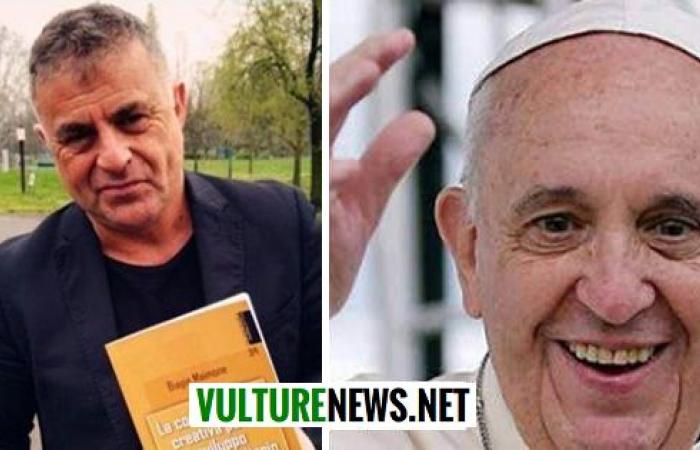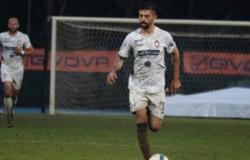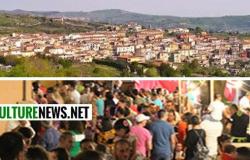
The journalist Biagio Maimone, originally from Maratea, in Basilicata, will present, Tuesday 15 October, at 6 pm, in the Conference Room of the Italian Cultural Institute of New York, on Park Avenue, his essay entitled “Creative Communication for socio-humanitarian development”published by the TraccePerlaMeta Publishing House.
The book is receiving a lot of interest as it proposes the need to found a new communication model that places human relationships at the center and, even more so, the moral and human emancipation of today’s society.
The book obtained the patronage of the Italian Cultural Institute of New York.
The American metropolis represents the first international stop for the Lucanian journalist, who intends to present his literary work in the main European cities and in the United Arab Emirates.
Basilicata or rather the city of Maratea stands out in the world.
According to Maimone, dialogue is the essential condition for achieving peace and it lives if those who communicate use the “vital word”, such as it generates life and not conflict.
Communication is vital, therefore, when it makes love for “Beauty” flow from the human heart, which is the expression of a plan of love inherent in the interiority of each person, to be projected into reality to emancipate it and make it a home welcoming to all, in which there is no place for violence and the consequent exclusion.
The love for “Beauty”, to be conveyed through communication, the written and spoken word, inevitably leads to love for the weak, for the least, in order to make them strong, included, awakening in them the joy of living .
The love for “Beauty” aims to spread that “Word” capable of conveying the “Pedagogy of Peace”, which creates bridges of humanity and that dialogue that brings differences to life, welcoming them into a life project.
“In my essay I wanted to highlight the need to create a communication model that takes into account the irrefutable importance of the appropriate use of the word, overcoming those distortions, now customary, which make it a vehicle of offenses, lies, as well as slander, which damage the human dignity of the interlocutor and of listening or reading.
We can see how often i mass media, much more social media, convey messages whose contents are pervaded by violence and social hatredwith the intention of discrediting and burning who they believe to be an adversary.
What emerges is the emergence of a subculture of communication that risks increasingly impoverishing human relationships, as the messages it transmits are uneducational.
In my text, which intends to counteract this cultural impoverishment and its harmfulness, it is emphasized that the word is life as it must generate life in its most noble and spiritual expressions, because it penetrates individual and collective consciences and, if it is supported by violence and lies, it creates a human conscience which is guided by disvalues which impoverish individual individuals and, consequently , the entire community and the social context.
Humanizing language so that it is a vehicle for the ‘Pedagogy of Life’ defines the authentic meaning of my journalistic commitment, which I am sure can be shared by those who make communication the tool through which they reach the inner world of the listener, in order to enrich it and not impoverish it through a distorted and therefore harmful use of language.
The contemporary era highlights a growing confusion of a spiritual and moral nature, which reflects on human relationships, on the relationships between States and Continents of the entire universe, generating conflicts, as well as moral and material poverty. Evidence of this is the continuous emergence of conflicts in numerous territories around the world.
What’s missing is theHuman Culture’, the ‘Culture of Human Brotherhood’ and ‘Culture’ understood as profound knowledge of reality and the authentic meaning of the value of the human being, as a thinking subject, in whose inner world live the values that give him a royal value compared to all other creatures and, even more so, compared to things” declared Biagio Maimone, who also underlined: “Human culture allows us to grasp the beauty deposited in the interiority of the person, generated by the divine splendor that dwells in the human soul.
It is the task of those who communicate to place ‘Human Culture’ at the center and, in this way, to highlight the supreme value of the human being, which distinguishes him from material things.
For this reason we intend to teach, starting from the rudiments of knowledge, that art that Fromm already claimed as a supreme value, which is the art of loving. We must therefore teach how to love. It is therefore necessary to communicate love.
And here is the need to ensure that our communicative pedagogy is aimed at recovering the values of art and spirituality, both belonging to the ethical and moral sphere of the individual’s life, necessary to nourish and advance every dimension of human life .
It’s about rediscovering moral beauty through communication, which becomes, first and foremost, moral teaching, so incisive that it can improve human interaction.
As Director of Communications of the “Bambino Gesù del Cairo” Association, founded by Monsignor Yoannis Lahzi Gaid, former personal secretary of Pope Francis, I had the opportunity to experience inner beauty, grasping it in the commitment of those who do their utmost in favor of abandoned and poor children, of those who live in poverty, of those who do not enjoy their fundamental social, human and civil rights.
I have had and will have the opportunity to communicate concrete solidarity by committing myself on a journalistic level to the contents of the Document on ‘Human Brotherhood for World Peace and Common Coexistence’, signed on 4 February 2019 by His Holiness Pope Francis and the Great Imam of Al-Azhar Ahmad Al-Tayyeb.
The aforementioned Document has given rise to numerous fruits, of which I had the honor, thanks to Monsignor Yoannis Lahzi Gaid, who placed his trust in me, of being able to write, thus collaborating in the commitment of their dissemination.
I also had the opportunity to write about the construction of the House of the Abrahamic Family, built in the city of Abu Dhabi, which is one of the most relevant projects as it lays the foundations of interreligious dialogue by creating a physical space, a common territory on which three different places of worship were built (a Church, a Synagogue and a Mosque), placed next to each other, in each of which different religions are practiced, which interface with each other to dialogue on every theme of religious life and human.
Equally engaging was for me to be able to write about the following projects: the ‘Oasi della Pietà’ orphanage, which was inaugurated on 5 May 2024 in the city of Cairo, the medical convoys, the “Bambino Gesù del Cairo” pediatric hospital, first Pope’s Hospital outside Italy, the “School of Human Fraternity” for people with disabilities, the “Chain of Restaurants of Human Fraternity”, called ‘Fratello’, which offers free meals to needy Egyptian families. Being able to contribute to their knowledge was a source of great happiness for me.
I dedicate my book, therefore, to Monsignor Yoannis Lahzi Gaid for the trust he placed in me and, at the same time, to His Holiness Pope Francis, as promoter of the realization of the projects, for which I was able to collaborate in the dissemination effort , which saw public opinion as the recipient of information regarding the commitment connected to the affirmation of interreligious dialogue, promoted, as a priority, by the Catholic Church and the Sunni Muslim religion.
I believe that communicating the pedagogy of love, respect for human dignity and the value of spiritual life is the primary task of the mass media, of the operators who pour their energies into them.
The socio-humanitarian dimension of life cannot be underestimated by communication without a ‘soul’, as society risks regressing towards barbarism, in which violence in all its forms will dominate.
Life cannot be a battlefield, but the loving and fraternal encounter of every human being.
For this to be the case, it is necessary to spread messages that recreate the lost awareness of the sacred value of every person.
In this way, beauty, understood as a magnificent expression of spiritual and moral values, will return – as I wrote in the above book – to illuminate every area of existence: ‘Beauty – there is no doubt – will return to being the magnificent face of life.
The bursting force of Beauty, which the Word has the duty to transmit, defeats all evil!
It is written in the Gospel, it is written in the hearts of men of Good Will and it is written in the vital threads of existence, which no one will ever be able to destroy because they belong to Life and Life is the very reason for human existence’”.





